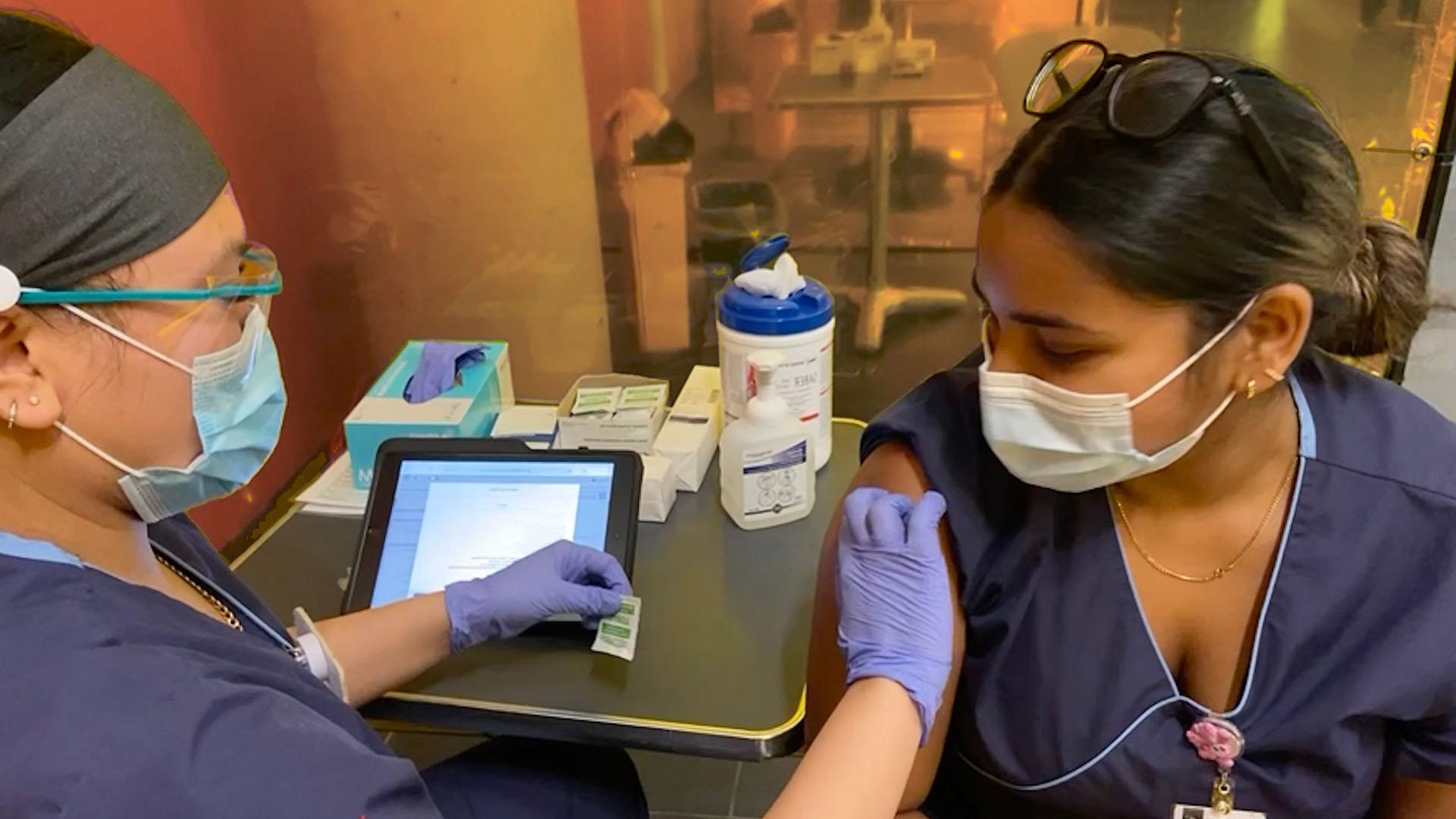For as long as she can remember, Amanda Manwah has wanted to be a nurse. It’s not especially surprising — she has a lot of nurses in her family, including her sister. Last spring, at the end of her second year of the Bachelor of Science – Nursing program, Manwah did her clinical placement at a vaccination clinic in North Etobicoke through a partnership between Humber and the William Osler Health System, and it was an eye-opening experience.
The vaccination clinic had been Manwah’s first choice for a clinical placement because she wanted to do something that would have a direct effect on the pandemic. While she was initially a bit nervous to be giving shots, she appreciated the support of Humber’s instructors, who not only taught students vaccination technique and other necessary steps, but were also on hand at every shift to support students as needed.
“We were all nervous about vaccinating for the first time — especially the first patient on the first day,” recalls Manwah. “For the first few patients that we each had, the nursing instructors would stay with us to make sure we did everything right. It’s a pretty easy process once you get used to it, so by the second or third day, everyone was a pro.”
“When you facilitate and put in time to build a relationship with people, you get a better response from them — they’ll be more open to receiving your care.”
That didn’t mean the job was always a breeze. Many patients getting vaccinated were anxious, hesitant or deeply afraid. Manwah quickly realized that her job wasn’t simply to vaccinate, but to help people throughout the process. “Sometimes it was very tough,” Manwah explains. “Often, people who were very scared would pull away or they would be crying hysterically.” For many patients, it was a matter of simply being unfamiliar with vaccinations. “A lot of people that came into the vaccine clinic had only recently moved to Canada. In their home countries, they had never had vaccinations before, so they had no idea what to expect,” Manwah says.
She gave patients time to talk through questions and concerns, and she leaned on a tried and true method to get the jabs done. “I would try to ask them about other things to distract them and get their mind off the anxiety that they’re experiencing,” Manwah says, noting that instructors would step in and help with distraction when patients were especially anxious.
The experience of supporting patients through their vaccination taught Manwah a lot about the importance of building a relationship with patients. “When you facilitate and put in time to build a relationship with people, you get a better response from them — they’ll be more open to receiving your care.”
Manwah also dealt with her share of faintings, particularly in the after-vaccination waiting area. She remembers one woman who breezed through the vaccination, waited the standard 15 minutes, and then fainted immediately upon standing up to leave. Manwah and one of her instructors took care of the woman and monitored her for a bit longer before determining she was okay. But it taught Manwah an important lesson: “You have to be prepared for anything.”
The reality of working in a hotspot vaccination clinic during the pandemic was nerve-wracking at times. “Sometimes it was a little overwhelming knowing I was coming into contact with so many people,” Manwah says, noting that she was comforted by the PPE supplied and the distancing and cleaning protocols. Even so, patients were a bit of a wildcard. “One patient I saw had only fallen ill with COVID the week before,” she recalls. “I panicked a little bit, but I called over my instructor and she just sent them home, so it was fine.”
With plenty of opportunities to apply the skills and knowledge learned in the classroom, Manwah says her placement at the COVID-19 vaccination clinic was a great experience. While her plans may change over the next two years, she hopes to put the lessons she learned about patient care and support to good use as a public health nurse — though she’s also considering doing a master’s degree.


